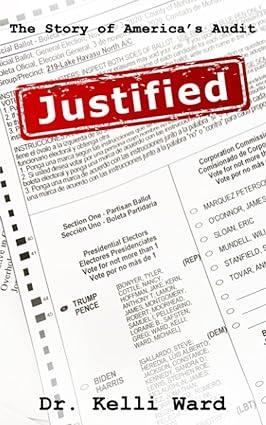Question
Upon arrival at Jelly Inc. you were directed towards the office of Mr. Kount, the Financial Accounting Manager. You thus immediately go to work on
Upon arrival at Jelly Inc. you were directed towards the office of Mr. Kount, the Financial Accounting Manager. You thus immediately go to work on his problems.
The company had begun their calendar fiscal year of 2021 with an issued and outstanding share capital of 540,000 common shares. Mr. Kount provided you with additional information on the companys equity and debt transactions for the year.
On February 1, it had issued 600,000 shares; 58,000 shares on May 1 and 100,000 shares on September 1, respectively.
On March 1, it had acquired 100,000 shares from the market and had immediately cancelled them.
The company also had outstanding at the beginning of the year, 5%, $100convertible preferred with contributed capital of $3,000,000. Each preferred share could convert into 2 common shares at the request of the shareholder.
Jelly had not declared any dividends for 2020 or for 2021.
The company also reported $15 million face value convertible bonds. These were 4.5% bonds payable, issued on August 1, for $14,100,000 and yield 5.5%. Each $1,000 par value bond is convertible into 12 common shares of the company.
The tax rate is 30%.
After further inquiry, Mr. Kount told you about the two types of options which had been issued in prior years and were outstanding as at the beginning of 2021. Put options had been issued to employees which entitled holders to sell 108,000 of the companys common shares to the company for $70.00 each. The company had also issued call options to the management team which enabled them to buy 230,000 common shares at $60.00 each. Jelly shares traded at an annual average price of $50.00 each. All options remained outstanding at the end of the year.
The company reported pre-tax income of $3,050,000.
With your meeting having concluded, Mr. Kount handed you a list of questions to resolve and insisted that you support your responses with clear detailed computations. He did add that other questions arising from related transactions were to follow.
Required:
1. Determine the weighted average number of shares to determine the basic earnings per share for 2021.
2. Determine the basic earnings per share for 2021, assuming
(a) the preferred were cumulative.
(b) the preferred shares were not cumulative.
3. Identify the potentially dilutive securities which could be included in the computation of diluted earnings per share. Be sure to support your answer with detailed computations and rank these securities where required.
4. Determine the diluted earnings per share to be reported by the company in 2021 assuming preferred shares were cumulative.
5. For this part only, assuming that the total net income was as above, but included an after-tax loss of $500,000 in discontinued operations. How would you disclose earnings per share data for 2021. (Hint: calculate the basic and diluted earnings per share for both continuing and discontinued operations).
6. For this part only, assume that the company declared a 3 for 1 stock split on June 1. What would be the revised weighted average number of shares for determining the basic earnings per share.
Step by Step Solution
There are 3 Steps involved in it
Step: 1

Get Instant Access to Expert-Tailored Solutions
See step-by-step solutions with expert insights and AI powered tools for academic success
Step: 2

Step: 3

Ace Your Homework with AI
Get the answers you need in no time with our AI-driven, step-by-step assistance
Get Started


